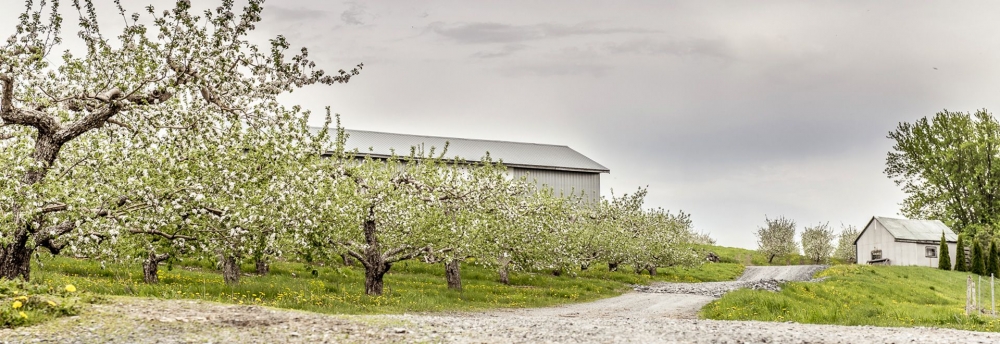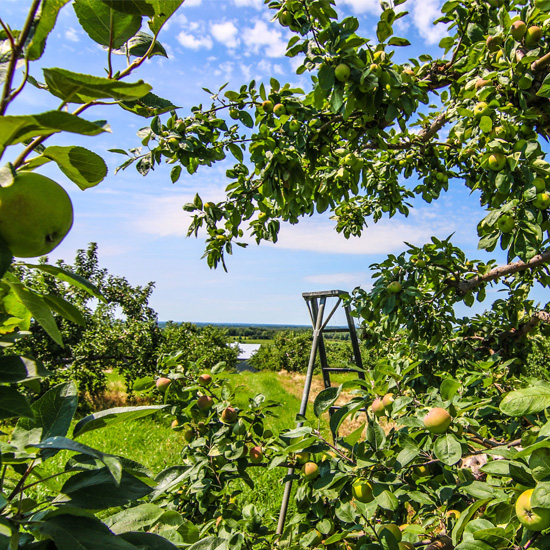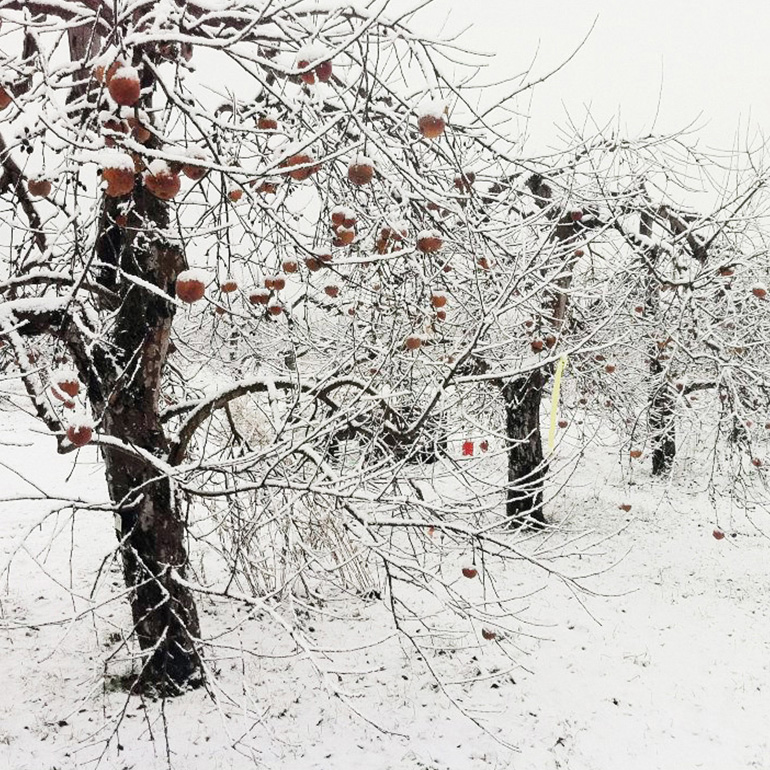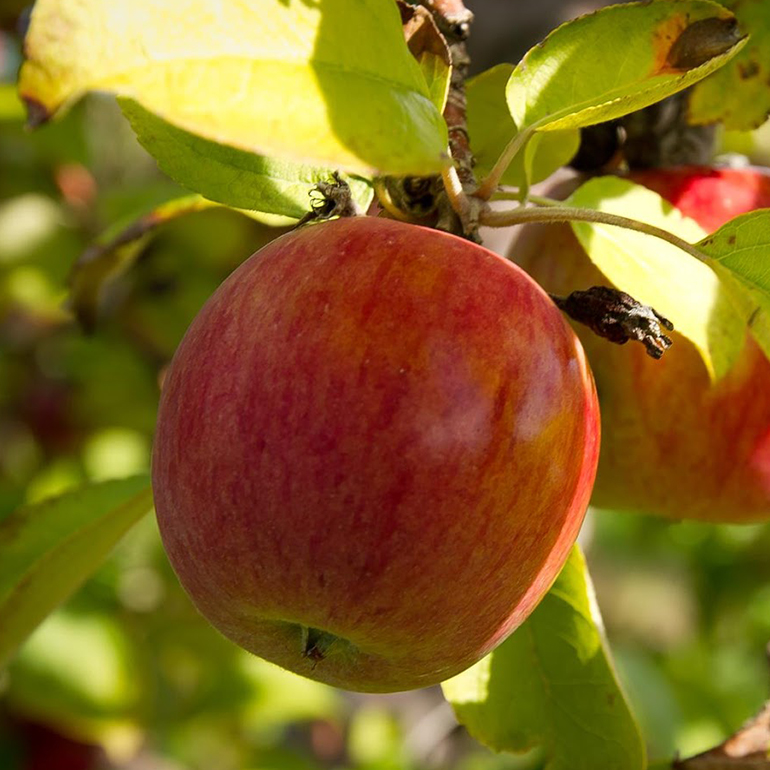

UNION LIBRE cidre & vin operates an orchard of more than 4,200 apple trees on 22 hectares of land. There were more than six varieties of apples, four of which are used in the transformation of cider: Cortland, Spartan, Empire and McIntosh.
UNION LIBRE cidre & vin, the very first producer of FIRE CIDER, is proud to have initiated and contributed to the creation of a new tradition within the industry of local alcohols in Quebec. The production oversight by the government confirms the unique character of this Quebec jewel.
UNION LIBRE cidre & vin is the very first producer of fire cider, a unique product created right here in Dunham, and who’s story is worthy of the greatest inventions!
Taking inspiration from ice cider, it was thought possible to create a delicious apple product by means of a different process: the concentration of apple sugars, not by freezing, as with ice cider, but through heat (evaporation).
Upon the first attempt, four litres of apple juice were boiled and then fermented. After spending five weeks in bottles, the unhoped-for results were obtained! A clean, highly sterile, tasty and naturally sweetened product was born. We call it fire cider. What a product!
To allow consumers to enjoy this innovation, we decided to heat greater quantities of the apple must meant for the production of fire cider, and for that, we used a maple sap evaporator. It wasn’t until 2012 that UNION LIBRE cidre & vin acquired its very own evaporator, the Ecovap.
One part of the fire cider vintage is fortified with apple brandy and aged for several months in oak barrels. This is the Aperitif Cider.

Fire cider is obtained by fermenting concentrated apple must through the use of heat. Picked and selected by hand, the apples are first pressed according to variety. The different kinds of must are combined and transformed by heating. This operation is carried out using clean energy, thereby allowing production to continue seamlessly, at a uniform and controlled temperature. The concentrate that results from the evaporation of the water is a mere fourth of the initial quantity. The nectar then ferments in stainless steel vats for several weeks at low temperature.

Ice cider was born in Dunham in 1989. The technique that led to its creation was based on the production technique of ice wine, called cryoextraction. This an artisanal technique consists of leaving the fruit on the tree until winter—a very expensive production process. To render the product more accessible, the cryo-concentration technique is now the most used technique for the production of this famous nectar.

Exposed to the natural cold until January so as to over mature, the apples are pressed frozen to extract the precious nectar. Depending on the year, a more or less significant proportion of apples are directly picked from the trees before being pressed in a frozen state. Approximately 6 kg of apples are required to obtain 1 litre of must with its high concentrated of sugar and aromas.

Harvested when matured and preserved until December, the apples are then pressed and the must that is obtained by this process is left outside in the cold winter of Quebec. After several days or weeks, the water separates from the sugars and enables the nectar to be extracted by gravity. Only 30% of the initial must will have the required concentration, and this will be fermented.
We use cookies
Respecting your privacy matters to us. We use cookies to personalize our content and facilitate your digital experience. Some cookies may be collected with your consent.
Essential
Essential cookies help make a website usable by enabling basic functions such as page navigation and access to secure areas of the website. The website cannot function properly without these cookies.
Performance
These cookies enable us to analyze navigation on our sites and improve their operation.
Customization
Preference cookies enable a website to remember information that modifies the behavior or appearance of the site, such as your preferred language or the region you are in.
Targeted advertising
These cookies help us limit the number of times you see an advertisement, personalize our offers and services according to your centers of interest, measure the effectiveness of an advertising campaign, and so on. They may be shared with our partners.
We use cookies
Respecting your privacy matters to us. We use cookies to personalize our content and facilitate your digital experience. Some cookies may be collected with your consent.